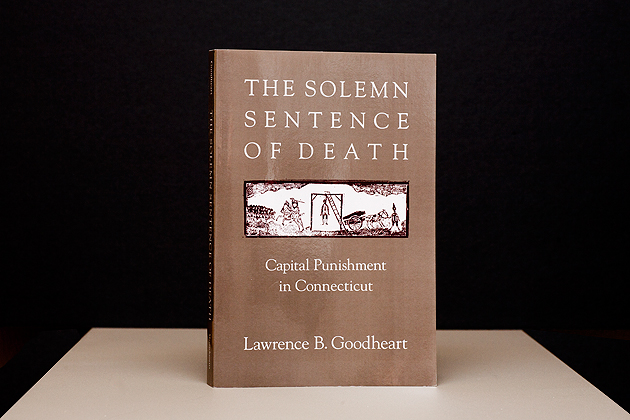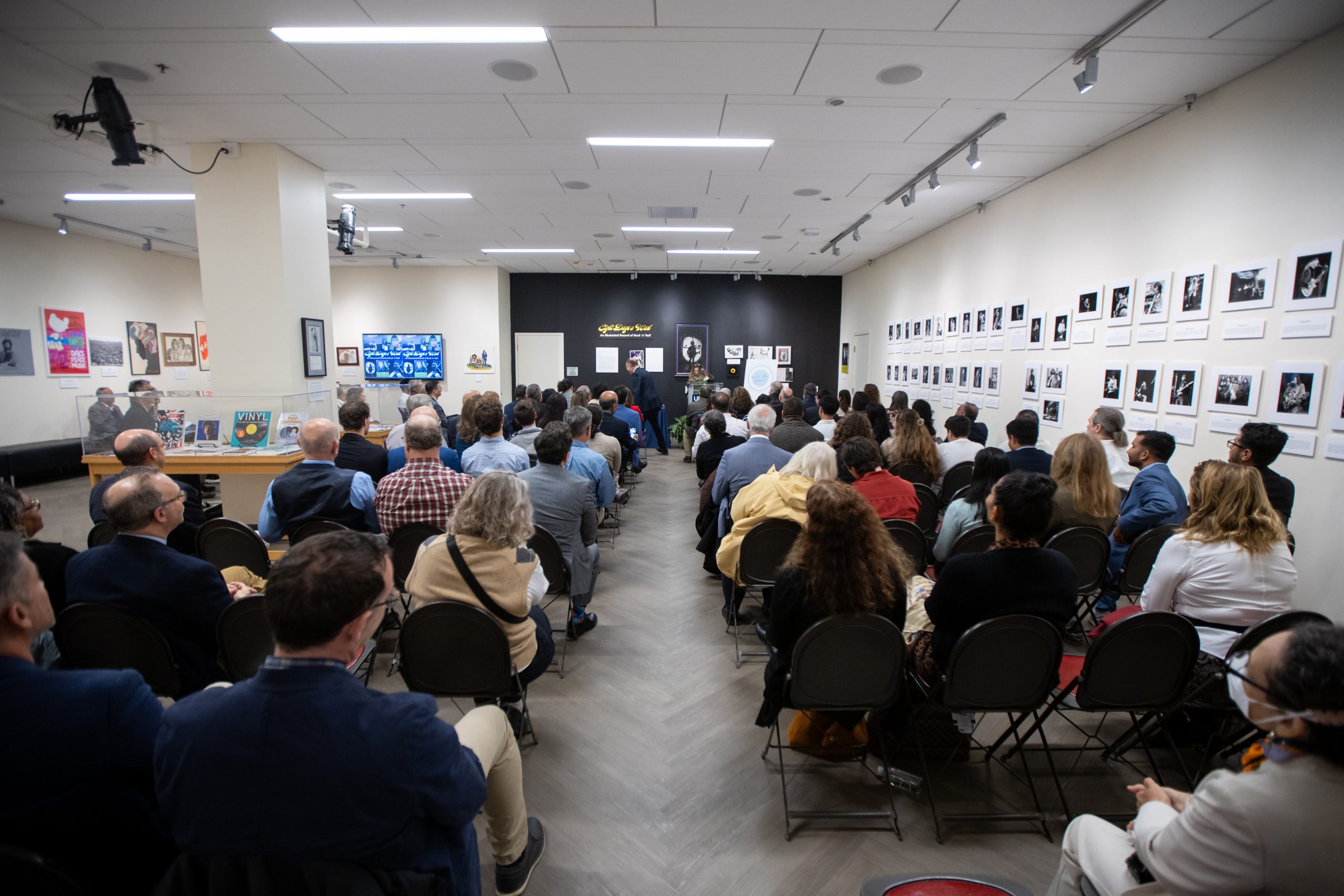In Hot Topics posts, UConn experts comment on current events and issues unfolding in the news.
With the two men charged in the brutal murders of a Cheshire family both convicted – one already sentenced to death and the other to be sentenced in a few weeks – the issue of the death penalty has again surfaced as a topic of debate.
UConn history professor Lawrence Goodheart studies the history of capital punishment in Connecticut, and is the author of books and essays on the subject, including The Solemn Sentence of Death: Capital Punishment in Connecticut (Amherst: University of Massachusetts Press, 2011).
He spoke with UConn Today about the issue.
Q: What are the origins of capital punishment in Connecticut and how has its place in society and use changed over the decades and centuries?
A: The death penalty originated in this state from Puritan concerns in the colonies of Connecticut and New Haven to create a biblical commonwealth. The Hebrew Bible, especially the Book of Leviticus, and English tradition, influenced the capital code. During the 17th century, each of the two colonies (New Haven was subsumed into Connecticut in 1665) had almost two dozen capital crimes at the high point.
As perception of crime and punishment has changed, so has the death penalty. As the religious intensity of the founding generation waned, executions for witchcraft, adultery, bestiality, and incest ended during the 17th century. All biblical references in the capital code were dropped in 1750. Concern with proportionate punishment during the Early Republic led to incarceration in Newgate Prison for a number of prior capital crimes, such as burglary. Hannah Occuish, a 12-year-old of mixed race, was in 1786 the last female of any age hanged because of the observance of an unofficial gender protocol. (She may have been the youngest person ever hanged in the United States.) The last execution for rape was in 1817, and the final public execution occurred in 1833. Since 1830, homicide is the only capital crime for which anyone has been executed in Connecticut. Federal court decisions since the late 1950s, particularly the strictures of Furman v. Georgia (1972) expanded defendants’ rights.
For the last half century Connecticut has this paradox: the state retains the death penalty, but the appeals process is of such long duration that only convicts such as Joseph Taborsky in 1960 and Michael Ross in 2005, who waived their rights and “volunteered” for death, have been executed.
Q: Connecticut is the only New England state that has utilized capital punishment in many years – with other states having banned it outright – and opinion polls would suggest that a majority of state citizens still approve of its use; this would seem to be at odds with Connecticut’s progressive political mindset in most other areas. Why do you suppose this is?
A: Efforts to abolish the death penalty in Connecticut were robust during the antebellum era, after World War II, and are at their zenith at the present. Several high-profile murder cases have for the last 50 years blocked abolition at a time in which most advanced nations have substituted incarceration for the death penalty. The execution style killings of six people by Joseph Taborsky and his mentally retarded sidekick Arthur Culombe in a series of robberies during the winter of 1955-1956 undermined Gov. Abraham Ribicoff’s stated intention to end the death penalty if the General Assembly presented him with such legislation. The shadow of these cruel murders lingered with public outrage. Michael Ross’s sadistic sexual attacks on eight girls and women riveted the state for two decades until his death by lethal injection in 2005.
And the horrific misogynistic murders in Cheshire in 2007 have, according to the polls, found that a clear majority of the public favor the execution of the now convicted culprits, Steven Hayes and Joshua Komisarjevsky. These sensational crimes have, everything else being equal, galvanized support of a long tradition of “an eye for an eye” and blocked abolition efforts.
Q: You oppose the use of capital punishment. Why?
A: I oppose the death penalty for several reasons.
First, I find capital punishment morally abhorrent. Connecticut’s history of beheading, hanging, electrocution, and lethal injection is repugnant in and of itself. For the state to legally kill someone who has illegally killed is a fundamental contradiction. Capital punishment is [prima facie] a violation of the Eighth Amendment’s prohibition on cruel and unusual punishment. It is a sad comment that the United States, including Connecticut, is allied with authoritarian regimes such as China and Iran as a perpetrator of the death penalty.
Second, there are now too many cases, including capital ones, where DNA evidence shows that the innocent have suffered. There is no reprieve after the death penalty is carried out. Long-term incarceration is an alternative that most advanced nations have adopted.
Thirdly, capital convictions in Connecticut are capricious. The former state attorney in Waterbury, for example, was zealous and successful in gaining death penalty convictions. That was not the case in other jurisdictions. The law was not applied equitably.
And finally my study, The Solemn Sentence of Death: Capital Punishment in Connecticut (2011) documents that almost all of the 158 people executed were those on the margins of society: the so-called witches, Indians, African Americans, Irish and Italian immigrants, the poor, mentally ill, the less educated, and the vulnerable in general. With the exception of Michael Ross, a college graduate, no one of the dominant classes, has ever been executed in Connecticut.
Contact information for members of the media:
Lawrence Goodheart, professor of history
College of Liberal Arts and Sciences
Phone: 860-570-9273
Email: Lawrence.Goodheart@uconn.edu



